I am trying to build vim with the following options on my Fedora 23
I want +python +python3 +perl +lua +ruby +gui +conceal +gui for some plugins.
I could not find a version with all those built in (so I do it myself)
The journey started by following Valloric
sudo yum install -y ruby ruby-devel lua lua-devel luajit \
luajit-devel ctags git python python-devel \
python3 python3-devel tcl-devel \
perl perl-devel perl-ExtUtils-ParseXS \
perl-ExtUtils-XSpp perl-ExtUtils-CBuilder \
perl-ExtUtils-Embed
I also have ncurses (raw,devel,static,...)
Then
$ cd $HOME/Sources
$ git clone https://github.com/vim/vim.git
$ cd vim
$ ./configure --with-tlib=ncurses \
--with-features=huge \
--enable-fail-if-missing \
--enable-luainterp=yes \
--enable-mzschemeinterp \
--enable-perlinterp \
--enable-pythoninterp=yes \
--with-python-config-dir=/usr/lib64/python2.7/config \
--enable-python3interp=yes \
--enable-tclinterp=yes \
--enable-rubyinterp=yes \
--enable-cscope \
--enable-multibyte \
--enable-gui=auto \
--prefix=$HOME/Build/vim \
--with-compiledby=statquant | tee configure.log
The following is printed on screen:
/home/statquant/Sources/vim/src/config-PyMake3137:1478: warning: overriding recipe for target 'Modules/_math.o'
/home/statquant/Sources/vim/src/config-PyMake3137:1475: warning: ignoring old recipe for target 'Modules/_math.o'
/home/statquant/Sources/vim/src/config-PyMake3137:1517: warning: overriding recipe for target 'Modules/timemodule.o'
/home/statquant/Sources/vim/src/config-PyMake3137:1482: warning: ignoring old recipe for target 'Modules/timemodule.o'
configure: error: NOT FOUND!
You need to install a terminal library; for example ncurses.
Or specify the name of the library with --with-tlib.
Then I
make | tee make.log
I realized that it actually built vim in $HOME/Sources/vim/src instead of $HOME/Build/vim (maybe I was wrong to expect that)
When I run :version on ./vim -g (vim has been build with GUI support) there is
NO python NO python3 ....

configure.log is there, make.log is there
EDIT1: the following works, I now only miss +perl +ruby
./configure --with-features=huge \
--enable-tclinterp=yes \
--enable-luainterp=yes \
--enable-pythoninterp=yes \
--enable-python3interp=yes \
--with-compiledby=statquant \
--prefix=$HOME/Build/vim \
make install # and yes it installs in $HOME/Build/vim
EDIT2 Here is what happen when I try to add
- +perl
I can run
./configure --with-features=huge \
--enable-tclinterp=yes \
--enable-luainterp=yes \
--enable-pythoninterp=yes \
--enable-python3interp=yes \
--enable-perlinterp=yes \
--prefix=$HOME/Build/vim \
--with-compiledby=statquant | tee configure.log
It appears to work (no error) : configure.log
make | tee make.log
[...]
cc1: error: -Wformat-security ignored without -Wformat [-Werror=format-security]
<command-line>:0:0: warning: "_FORTIFY_SOURCE" redefined
<command-line>:0:0: note: this is the location of the previous definition
cc1: some warnings being treated as errors
make[1]: *** [objects/option.o] Error 1
Makefile:2907: recipe for target 'objects/option.o' failed
make[1]: Leaving directory '/home/statquant/Sources/vim/src'
make: *** [first] Error 2
Makefile:26: recipe for target 'first' failed
I get no vim built in /home/statquant/Sources/vim/src : make.log
+ruby
./configure --with-features=huge \ --enable-tclinterp=yes \ --enable-luainterp=yes \ --enable-pythoninterp=yes \ --enable-python3interp=yes \ --enable-rubyinterp=yes \ --prefix=$HOME/Build/vim \ --with-compiledby=statquant | tee configure.log
It does not even run configure
checking --with-tlib argument... empty: automatic terminal library selection
checking for tgetent in -ltinfo... no
checking for tgetent in -lncurses... no
checking for tgetent in -ltermlib... no
checking for tgetent in -ltermcap... no
checking for tgetent in -lcurses... no
no terminal library found
checking for tgetent()... configure: error: NOT FOUND!
You need to install a terminal library; for example ncurses.
Or specify the name of the library with --with-tlib.
Here is the log: configure.log
